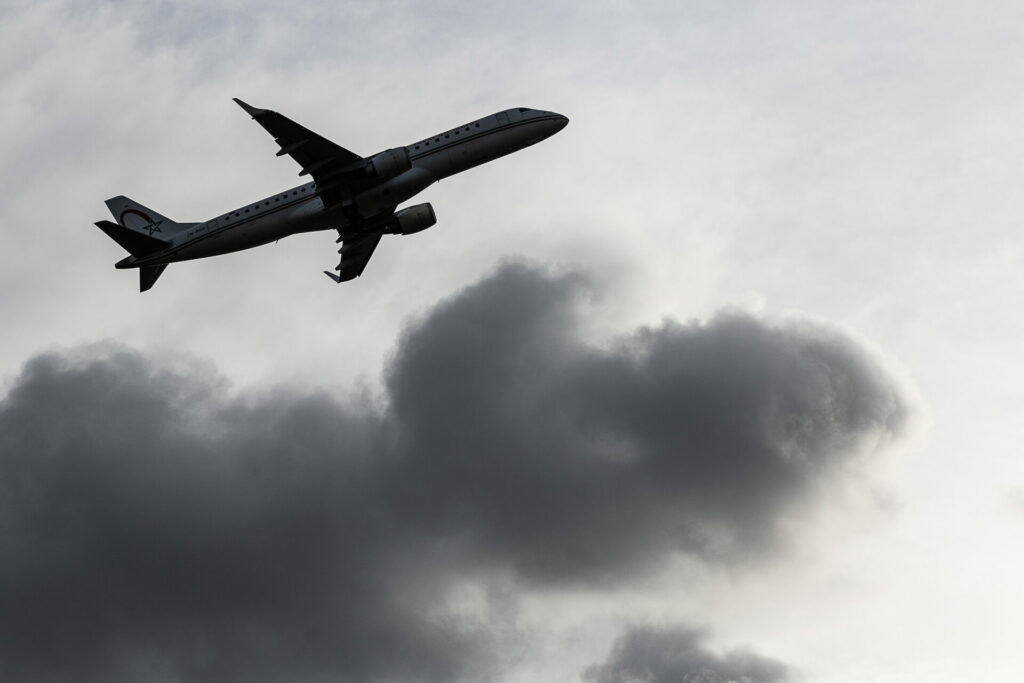Up to 950 flights a day risk being diverted as a result of air traffic difficulties this summer, La Libre Belgique reports.
Planned strikes by French air traffic controllers, paired with NATO military exercises, threaten another chaotic summer travel season.
Disruptions are set to be most severe in Germany and France. Unfortunately for air travel from Belgium, most flights are directed over these two countries. Levels of air traffic over Europe are already significantly elevated as Europeans begin jetting off abroad.
According to data from the International Air Transport Association (IATA), air travel has all but completely recovered to levels witnessed before the start of the Covid-19 pandemic. Over 4 billion passengers are expected globally, only slightly shy of 2019 levels.
Last summer was especially chaotic. This was most evident in the Netherlands, with Amsterdam’s Schiphol airport recording hours of waiting time for security and check-in, causing many passengers to miss their flights. Airports spectacularly underestimated the surge in demand for holidays in the summer following a series of layoffs during the pandemic.
Given the exceptional air control strikes and NATO exercises this summer, some experts are already warning of similar disruptions, especially in France. Air traffic control strikes lead to lengthy hold times for landing slots and even cancellations.
French knock-on effect
In May, low-cost airline Ryanair was forced to cancel 220 flights due to air traffic controller strikes. In an angry video statement released by CEO Michael O’Leary on 30 April, the airline boss denounced the French government and unions for disrupting air traffic across Europe.
William Walsh, Director General of AITA and former boss of British Airways, said that the “French system” needed to be reviewed to avoid future disruption. “That France closes its sky for its domestic flights, fine. But it is untenable if it prevents the overflight of its territory at the slightest [strike] action,” he told La Libre. Walsh also expressed concerns that Schiphol would once again fold under the weight of demand for flights.
Asides from increased demand, airlines must now contend with reduced European airspace. Russia’s invasion of Ukraine has led to the closure of Ukrainian, Moldovan, and Russian airspace for European carriers, forcing aircraft to take lengthy diversions through busy airspace. European sky has thus shrank 20%, leading to increased fuel costs and busier summer periods.
NATO exercises will add an extra layer of problems for airlines, who have long grumbled about the closure of Russian airspace to international flights operated by European airlines. Up to 950 flights a day could be cancelled or delayed as a result of NATO exercises, which typically force airspace to close suddenly.
Related News
- Ryanair doubles revenue and plans 'biggest summer' for flights
- Brussels Airport traffic up 18% in April
Cancellations mean refunds, delays, missed flight windows, and exceptional costs for carriers. In anticipation, airlines are demanding more flexibility from airports and European authorities. Industry bosses say that the response from the European Commission has been underwhelming.
“It does not consider that these military operations are exceptional situations, since they are planned in advance,” said Captain Giancarlo Buono, regional director of safety and flight operation for Europe at IATA. “On the contrary, we believe that they are dynamic exercises and therefore not very predictable. With the aircraft rotation system, if your first flight is late, it causes problems all day.”
Despite concerns over disruptions, airlines are still expecting a profitable year. Profits are expected to reach $9.8 billion globally, almost double previous estimates. Profits are largely driven by increased ticket prices, sustained by high demand.

